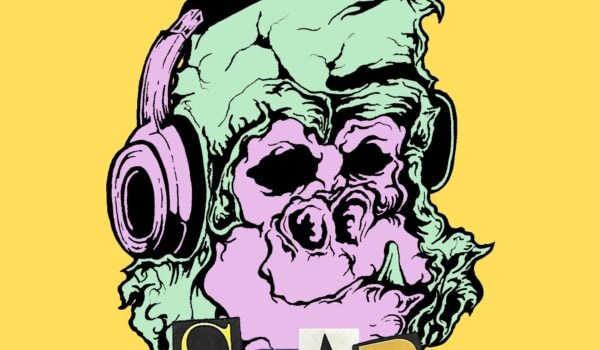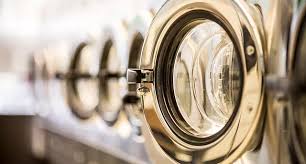Over the past week we have seen Jeremy Corbyn and Boris Johnson go head to head on ITV’s live debate, and the pair of them, along with Liberal Democrat leader Jo Swinson and Scottish National Party and Scotland’s First minister Nicola Sturgeon, faced tough questions from the BBC audience. I will be analysing the strengths and weaknesses of each leader in each of these debates.
A word on impartiality: I believe strongly in being completely impartial when writing for press, but I do not believe that anyone can accurately put aside their own subconscious biases in political debate. So with that in mind I am declaring that I am a Conservative Party supporter and, whilst I will be writing impartially on all the leaders, I urge you to keep this in mind and watch the debates for yourself to see who you think came out on top.
If you haven’t registered to vote, you have until the 26th of November. Register here: https://www.registertovote.service.gov.uk/register-to-vote/already-registered?src=schema
The Conservative Party – Boris Johnson
The Good: Much to Boris Johnson’s delight, the first question was about Brexit, which is something he doesn’t really stop talking about. The Brexit debate lasted for the first ten minutes, with Johnson having the upper hand with his already prepared “oven-ready” deal to be thrown into the Aga as soon as he got a majority in parliament. He also managed to get a fair amount of punches in Labour’s policy on Brexit, arguing that there was a “glaring lacuna” (what?) in Corbyn’s Brexit plans, playing up the fact that Corbyn wouldn’t say what side he would campaign on if Labour gave the public a second referendum. He also managed (or at least attempted) to dispel fears that the NHS would be sold to U.S private companies by asserting “The NHS will NEVER be for sale”.
The Bad: Well, Boris Johnson performed remarkably well on the Brexit side of the debate… so much so that he really didn’t want to leave it. Like, he really refused to leave it. When the debate moved on to the NHS, he had a poor record to uphold. With NHS waiting times in Accident and Emergency performing their worst ever, he really needed to convince the public that there was a plan in place to fix this. Instead, all he really said (besides that he was building more hospitals) was that he would get parliament working again by “getting Brexit done”. He continued to assert this over and over again, and groans from the audience should have indicated to him that, yes, we get you have a Brexit policy but for goodness sake’s man please tell us you have something else. Additionally, he received laughs from the audience when he answered “of course” to the question of truth mattering. He still has a massive image issue when it comes to trust in this election.
The Twitter: On that note of trust in Boris Johnson and The Conservative Party, during the debate the party went leaps and bounds to ensure that the public could trust them to always tell the tru— never mind, they rebranded their press office as “Fact Check UK” … I don’t know whose idea that was, or at what point they thought that it would get people on their side. Honestly, it undermined the Prime Minister and the rest of the party. It was poor and deceitful. Yes “CCHQ” may have been in the Twitter handle, cover photo and bio, but at the same time this isn’t the action a “trustworthy” party would take. There is work to be done here.
The Labour Party – Jeremy Corbyn
The Good: Jeremy Corbyn had his usual energy, enthusiasm and passion when it came to the NHS and austerity. He strongly stood up and highlighted the Conservative Party’s failure in the NHS, using anecdotes that a friend of his had died from breast cancer, claiming that she had to wait for 8 hours to receive urgent care. He asserted that the NHS would be “put up for sale” to the U.S highlighting a completely redacted document on meetings between the UK and U.S Governments on a future trade deal. On Austerity he performed as strong as usual, promising that if he were in government there would be a £10 an hour basic living wage, he would end zero hours contracts, and invest in manufacturing jobs in the United Kingdom, claiming that he would bring an end to austerity.
The Bad: Jeremy Corbyn had two stand out low moments. The first of which was in the first ITV debate where he declared that his Brexit policy was that he would spend three months renegotiating a deal with the European Union and then put it to the people in a referendum against the option of remaining in the European Union. When asked about what side he would campaign on in this referendum, he just continued to repeat his policy. This allowed the Prime Minister to throw in some punches by continuously asking what side he would support and receiving the same answer. This happened nine times during the first ten minutes of the debate, the last of these times was when the audience laughed at his policy. The Leader learned from this mistake and in the following BBC debate he answered the question by saying he would “stay neutral”. Additionally, Corbyn faced tough questions by a Jewish audience member who said that the leader had failed to combat anti-Semitism in his party.
The Twitter: The Labour Party has set up a Twitter account called “The Insider”. This Account is set up for their users to, “Trust the facts, not their waffle.” Whilst not quite on par with the Conservative’s “Fact Check UK”, the account does not say anywhere else other than the bio that it is run by The Labour Party, meaning users may see an individual post and consider it as fact without realising that it was a Labour run page… much like the Conservative Party’s “dystopian” fact checker.
The Liberal Democrats – Jo Swinson
The Good: Jo Swinson faced a ridiculously hostile audience, something the BBC will have to answer for. Yes, all the leaders faced tough questions, but none received a response quite like Swinson. With that in mind, she delivered her lines extremely well, staying true to her “cancel Brexit” policy and trying to grab those remain voters fleeing the Conservative and Labour Party. Where Johnson’s plan is to play on the public fatigue on Brexit by arguing that with his policy we will be out and done by January, Swinson is playing a similar game arguing that if she was Prime Minister, she would completely cancel Brexit and allow the country to move on. She was also honest, and she held her hands up about the mistakes made when she was in government with the Conservative Party. I, personally, respected this honesty which is something that is missing in our politics at the moment.
The Bad: The BBC did not do a good job at all with providingan impartial audience, and this showed with Jo Swinson’s performance. With almost no energy and agreement coming from them, it was difficult to watch as Jo Swinson’s policies faced anger and hostility amongst, what seemed to be, almost every audience member. There was almost no applause when she answered questions and it seemed her biggest failure was getting people on her side. I’d argue that the biggest failure in this segment of the show was down to the BBC and not Jo Swinson, and it is unfair as we do not know how well she would have performed with a properly impartial audience. Perhaps in the next debate…
The Scottish National Party – Nicola Sturgeon
The Good: Nicola Sturgeon is a very talented and experienced debater, being a leading voice in the Scottish Independence and European Union campaigns, along with leading the Scottish National Party campaign in 2015 (which saw the party win all but 3 seats in Scotland), a third term in the Scottish Parliament, another (albeit smaller victory) in the 2017 General Election. She’s a veteran to the campaign trail. So it should come as no surprise that she performed remarkably well in this debate. She was honest about her price of supporting a Labour government. She wants a second independence referendum for Scotland, and when challenged by Jeremy Corbyn’s statement that there would be no Independence referendum in “the early years” she made a very clear point:
“Having heard Jeremy Corbyn, do you think he’s going to walk away from the chance to end austerity, to protect the NHS, to stop universal credit, simply because he wants, for a couple of years, to prevent Scotland to have the right to self-determination?”
This, for me, was a stand-out moment for the First Minister.
The Bad: Nicola Sturgeon has a dark shadow following her, growing in size and in importance: Drugs. Last year Scotland had the highest number of drug-related deaths in Europe, and the deaths continue to rise. Like Boris Johnson, she has a reputation of being in office to defend, and making it much more difficult is that her party has been in office since 2007. There was anger in the audience, in particular from a recovering addict, on her inaction on the issue. On top of this she received a considerably hostile response by the audience when attempting to answer questions on the ability of Scotland to be independent, namely the likelihood of an independent Scotland being allowed into the European Union and handling finances.
Neither the Liberal Democrats not the Scottish National Party had any major scandal on Twitter. However, I think considering the usage of it by the two major parties, it’d be best if we just banned politicians from twitter altogether…









Comments